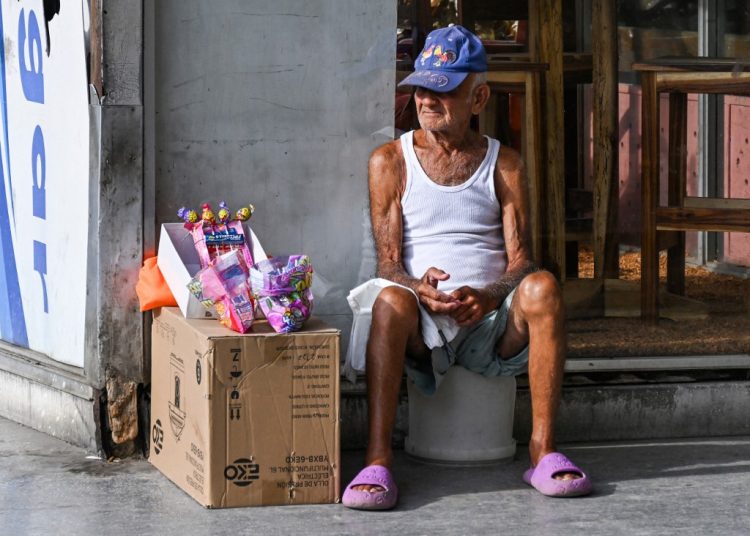The President of the United States, Donald Trump, signed a new National Security Presidential Memorandum (NSPM) reinforcing Washington’s hostile approach towards Cuba. The document reestablishes harsher directives in line with the so-called “maximum pressure” applied during his first term.
The memorandum reintroduces restrictions removed during Joe Biden’s presidential term. They include prohibitions on tourism trips by US nationals to the Caribbean country and a tougher economic, commercial and financial blockade of Cuba.
According to a White House official statement, “This NSPM restores and strengthens the robust Cuba policy from the President’s first term, reversing the Biden Administration’s revocation that eased pressure on the Cuban regime.”
Also, the document determines regular audits to be carried out and “mandatory record-keeping of all travel-related transactions for at least five years,” as part of the prohibition on trips by US nationals to Cuba.
Cuban President Miguel Díaz-Canel said the memorandum is the continuation of a “merciless economic war” that severely limits the possibilities for the country’s commercial and financial development. In his X account, he said that the “new aggressive plan targeting Cuba” addresses the “specific and non-representative” interests of most US citizens. Canel also denounced that the tightening of the blockade intends to “cause deep harm and suffering to the people” and concluded by saying that “We will deal with the impact of it, but we won’t surrender.”
Tightening of sanctions and support for the opposition
The memorandum states that the Trump administration will continue to “evaluate its policies” to “improve human rights, encourage the rule of law, foster free market and free enterprise”, as well as “promote democracy in Cuba”.
One of the central points of the document is the ban on “any direct or indirect financial transactions” with Cuban state entities, especially with the GAESA (Grupo de Administración Empresarial S.A.) conglomerate and its subsidiaries, controlled by the Cuban Armed Forces.
However, the regulations provide for exceptions for operations that “contribute to the policy objectives of the United States or support the Cuban people.”
The section on implementation mentions support for “programs to build democracy in Cuba”, referring to the funding of political groups, the media and non-governmental organizations that oppose the Cuban government.
An example of this is the Office of Broadcasting for Cuba (OCB), which manages “media” aimed at the Caribbean island. According to the organization itself, its mission is “to promote freedom and democracy by providing the Cuban people with objective news and information.” According to official figures, the office has an annual budget of 12.97 million dollars, which comes from public funds from the US federal government.
In light of the White House announcements, the US Embassy in Havana, Cuba’s capital, has announced that it will review the social media accounts of visa applicants, including students, professionals and people who intend to emigrate to the US permanently.
The most severe restrictions will be aimed at students who wish to enter academic institutions, as well as those who intend to study at recognized non-academic centers.
People who have recently been denied visas believe that the analysis seeks to reject applications – even temporary ones – from people who express support for socialism, make positive references to the Cuban Communist Party, criticize the US government or Israel, or show support for the Palestinian cause.
Global rejection
The memorandum also reaffirms Washington’s support for the unilateral economic blockade that the United States maintains against Cuba. In the face of repeated criticism from the international community, which considers the blockade a violation of international law, the document states that the NSPM supports the economic embargo and “opposes efforts at the UN or any other international forum to lift the embargo.”
Every year since 1992, the United Nations General Assembly has taken a stand against the US blockade of Cuba. In October 2024, the resolution presented by Cuba was supported by 187 countries, marking the thirty-second consecutive time that the blockade has been called off. Only the United States, Israel and a circumstantial US ally voted against it. The Assembly also condemned Cuba’s inclusion on Washington’s unilateral list of “state sponsors of terrorism.”
According to estimates presented to the UN General Assembly, between March 1, 2023 and February 29, 2024, the embargo caused an estimated loss of 5.5 billion dollars for the Caribbean island.
The White House document states that Trump is “fulfilling his campaign promise” and quotes his own words: “As president, I will again stand with the people of Cuba in their long quest for justice, liberty and freedom.” In recent months, his administration has, once again, included Cuba on the list of state sponsors of terrorism and tightened migration restrictions for its citizens.




